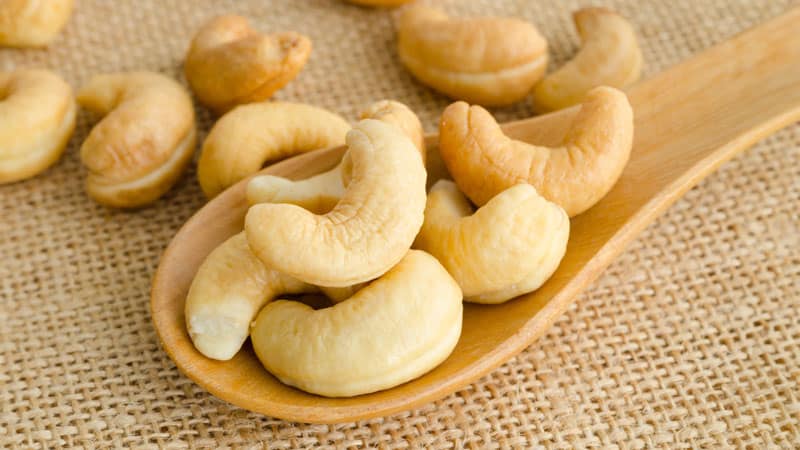
Cashews are probably the most versatile nuts out there. Their mild, creamy flavor and light color make them ideal for creating healthy alternatives to many dairy-based or coconut-based ingredients that are packed with saturated fats. For example, we can use them to make delicious nice-cream, fantastic sour creams and vinaigrettes, vegan queso and cream-cheez, or even to create delicious creamy soups like vegan broccoli soup.
Aside from making an amazing creamy ingredient, cashews can be eaten on their own as snacks, or added whole to main dishes like Thai cashew tofu. We can also eat regular cashew butter as a spread or drink cashew milk. Do keep in mind that just like any other nuts, cashews are very rich in fat and 1/4 of a cup still has about 3 g of saturated fat. While that is about half the amount of saturated fat you’d be getting if you use heavy cream or coconut milk in your recipes, it can still add up. So, eat cashew nuts in moderation, especially if you’re trying to lose weight.
Cashews are an excellent source of omega-6 fatty acids, copper, magnesium, manganese, phosphorus and zinc. They also offer a good amount of protein, vitamin K, and iron. So, they are great for our heart, our bones, our muscles, our brain, our immunity, our metabolism, our red blood cells, our children’s early development, and to reduce inflammation.
Try our personalized nutrition calculator below to see just how much nutrition you and your family can get from eating cashews.
Cashew Nutrition Calculator
Use our personalized nutrition calculator to discover the percentage of daily nutrition needs you and your family can get from eating cashew nuts.
Nutrition needs vary according to age, sex, and whether women of reproductive age are pregnant or breastfeeding. Fill out the form below for yourself and for your family members to get personalized results.*
* Calculated as a percentage of the Recommended Daily Allowances (RDAs) as established by the U.S. Department of Agriculture and the U.S. Department of Health and Human Services. Based on nutritional information provided by the U.S. Department of Agriculture as an average of multiple cashew nuts samples.
References
